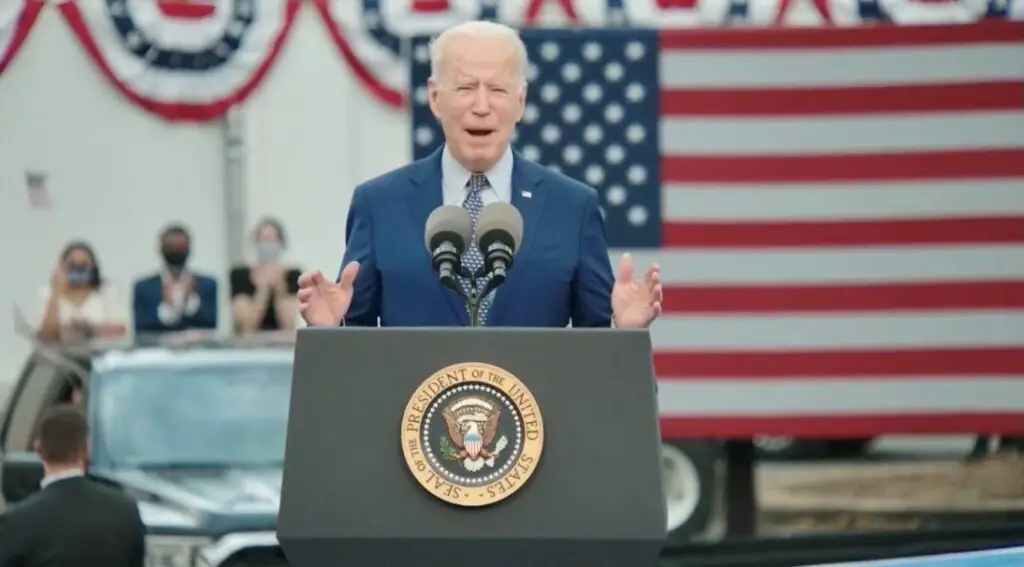President Joe Biden’s revised – but still massive – infrastructure spending bill includes several major wins for Georgia’s two Democratic U.S. senators.
The $1.75 trillion reconciliation bill was announced late Thursday morning after days of feverish negotiations among Congressional Democrats.
Key Terms
Infrastructure: The basic physical structures that organize a society. Buildings, roads, bridges, power supply structures, and water structures are all types of infrastructure.
Notably, according to the White House, tax credits under the ACA will be extended through 2025. The White House said experts predict more than 3 million people who would otherwise be uninsured will gain health insurance. The bill also makes those tax credits available through 2025 to 4 million uninsured people in uncovered states.
Both U.S. Sens. Jon Ossoff and Raphael Warnock have been vocal proponents of Medicaid expansion in Georgia. Biden’s Build Back Better proposal includes a provision to close the Medicaid coverage gap in Georgia and the 11 other states where states have refused to expand Medicaid.
Warnock’s office said the expansion will provide health insurance to about 646,000 Georgians who make too much money to qualify for traditional Medicaid coverage but make too little money to afford coverage on the marketplace.
According to the White House, here are some of the items included in the reconciliation bill now being debated in Congress:
- Universal preschool for all 3- and 4-year-olds. This expands access to free high-quality preschool for more than 6 million children. This is a long-term program, with funding for six years.
- Limiting of child care costs for families to no more than 7% of income, for families earning up to 250% of state median income. It enables states to expand access to about 20 million children. Parents must be working, seeking work, in training or taking care of a serious health issue. This is a long-term program, with funding for six years.
- Extend for one year the current expanded child tax credit for more than 35 million American households, with monthly payments for households earning up to $150,000 per year. Make refundability of the Child Tax Credit permanent.
- Clean energy tax credits ($320 billion): Ten-year expanded tax credits for utility-scale and residential clean energy, transmission and storage, clean passenger and commercial vehicles, and clean energy manufacturing.
- Resilience investments ($105 billion): Investments and incentives to address extreme weather (wildfires, droughts, and hurricanes, including in forestry, wetlands, and agriculture), legacy pollution in communities, and a Civilian Climate Corps.
- Investments and incentives for clean energy technology, manufacturing, and supply chains ($110 billion): Targeted incentives to spur new domestic supply chains and technologies, like solar, batteries, and advanced materials, while boosting the competitiveness of existing industries, like steel, cement, and aluminum.
- Clean energy procurement ($20 billion): Provide incentives for government to be purchaser of next-gen technologies, including long-duration storage, small modular reactors, and clean construction materials.
- Allow Medicare to cover the cost of hearing.
- Housing: $150 billion investment in housing affordability and reducing price pressures, including in rural areas. Funds go toward building more than 1 million new affordable rental and single-family homes, rental and down payment assistance, and public housing.
- Reduce costs and expand access to education beyond high school by raising the maximum Pell grant, providing support to Historically Black Colleges & Universities, Hispanic Serving Institutions, Minority Serving Institutions, and Tribal Colleges and Universities, and investing in workforce development, including community college workforce programs, sector-based training, and apprenticeships.
- An earned income tax credit for 17 million low-wage workers.
The White House continues stressing the plan is more than fully paid for by asking the wealthiest Americans and most profitable corporations to pay their fair share. It does not raise taxes on small business and anyone making less than $400,000 per year.
This story available through a news partnership with Capitol Beat News Service, a project of the Georgia Press Educational Foundation.
The form you have selected does not exist.


